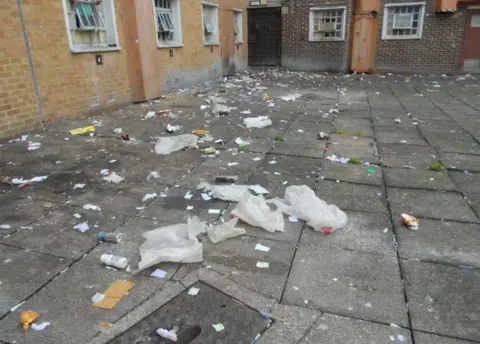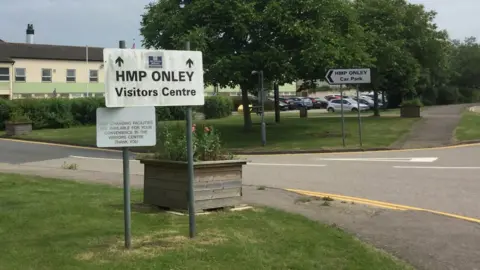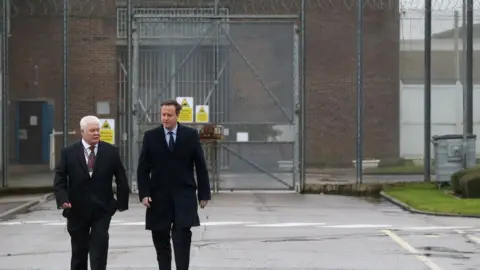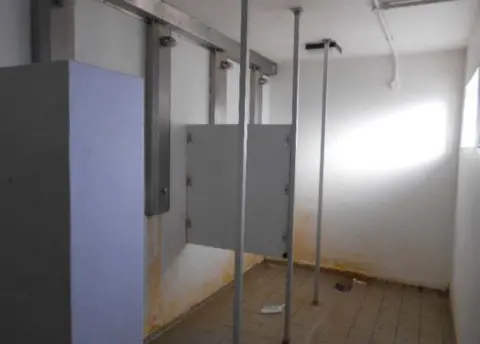HMP Onley: 'Little done' over jail's London gangs
 HMIP
HMIPA prison which attributes high levels of violence to London gangs has done "very little" to understand potential inmate conflict, a report has found.
About 80% of the inmates at HMP Onley - on the Northamptonshire-Warwickshire border - come from the capital.
A HM Inspectorate of Prisons report found the jail "did not obtain adequate information" about gang affiliations.
The Prison and Probation Service said that "despite difficulties there is good work going on at Onley".
 HMIP
HMIPThe Category C jail, which holds about 740 men, was designated as a resettlement prison for Greater London in 2013.
An inspection in 2016 blamed London prisoners and gang-related issues for a "sharp rise" in assaults in four years.
The most recent inspection, between 12 and 23 November, found that levels of violence remained high and called the jail "fundamentally unsafe".

 Getty Images
Getty ImagesThe report said staff continued to have the same suspicions about London gangs, but inspectors found that despite interviewing new arrivals about associations, this information was not always shared with security staff.
"Very little was done to understand, analyse and map prisoners' affiliations and potential conflicts, and consequently inform their safe management," it added.
The report also found that despite 200 emergency calls related to new psychoactive substances in the three months before the inspection, "far too little was being done to obstruct the flow of drugs into the jail".
 HMIP
HMIP HMIP
HMIPChief Inspector of Prisons Peter Clarke said HMP Onley was "a clear example of where the failure to deal with drugs and violence undermined many other aspects of prison life".
Michael Spurr, chief executive of HM Prison and Probation Service, said that tackling drugs and violence at Onley was their "top priority".
He said the jail would soon have 30% more officers than in 2018 and had additional security measures.
Mr Spurr added: "As the Chief Inspector makes clear, despite the difficulties there is good work going on at Onley to help prisoners turn their lives around and reduce the risk of reoffending on release."
